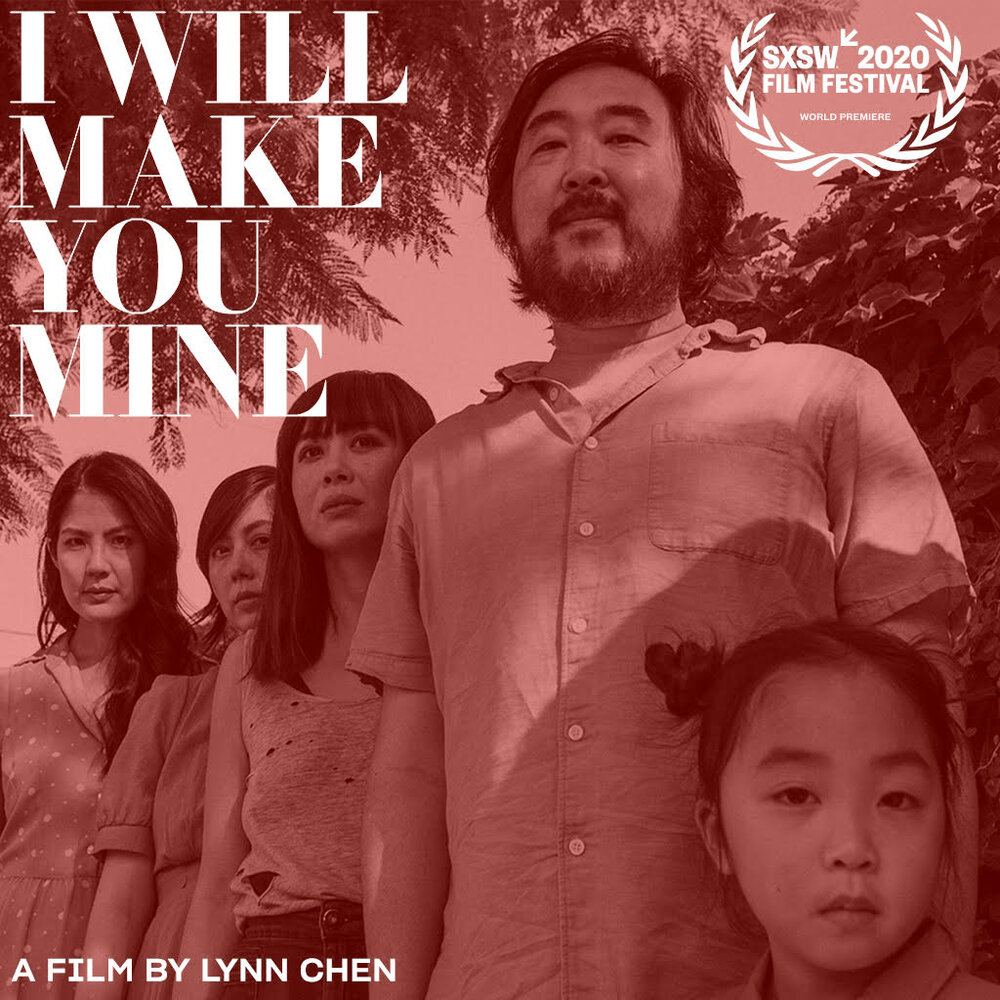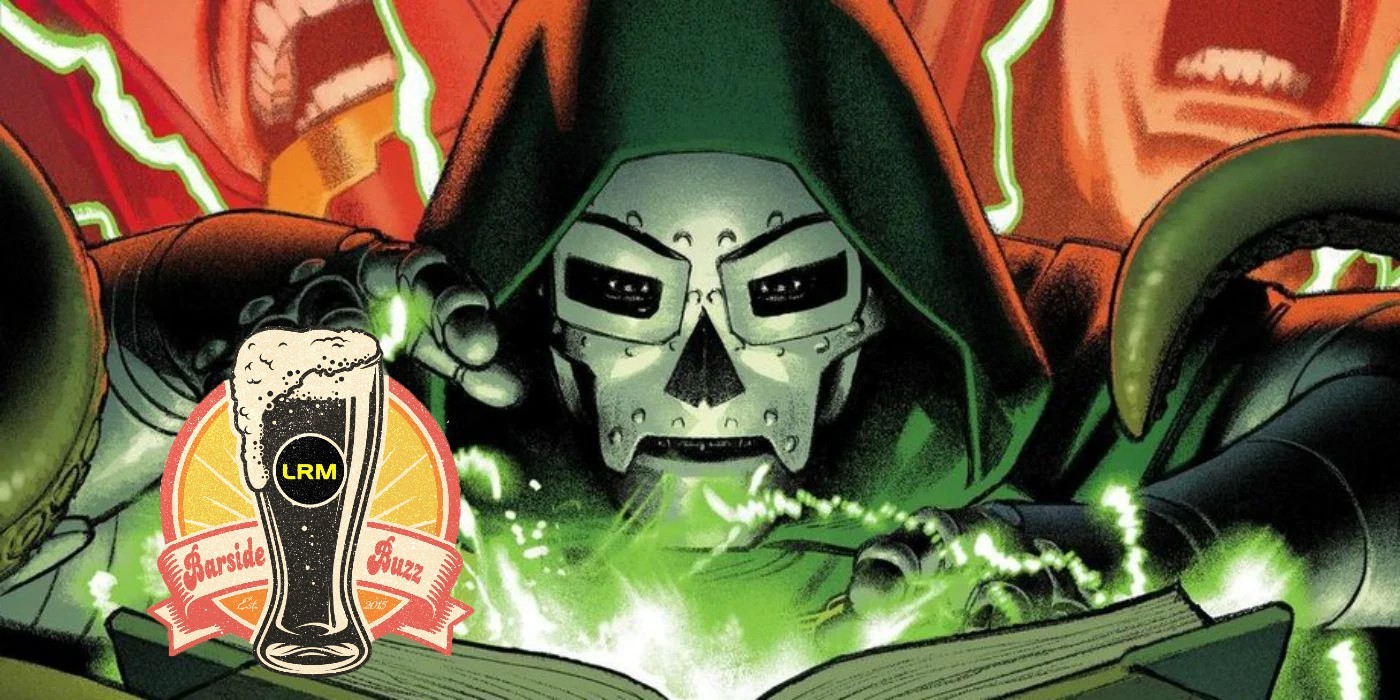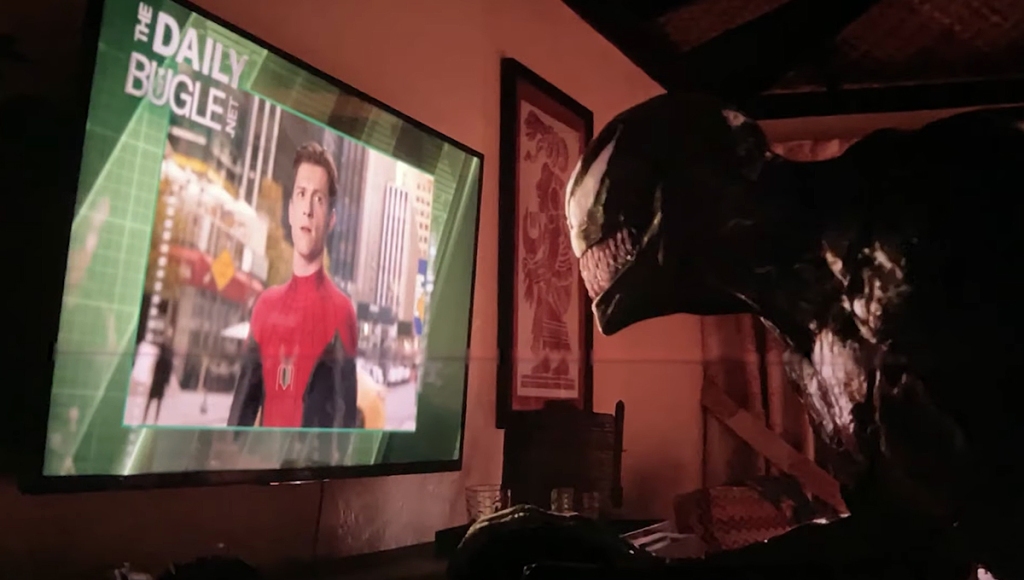Imagine working on a project only for the lead/manager to just stop all work and saying they wouldn’t complete it. All your hard work having to be put on hold with no sense of closure and then you are told to finish the project yourself. That is exactly the rollercoaster of emotions that Lynn Chen went through to complete the Surrogate Valentine trilogy. After completing the second part of Surrogate Valentine with Daylight Savings David Boyle let Lynn Chen know that there wouldn’t be a third part with him directing or writing. That is when Lynn Chen stepped in and decided to take the mantle and complete a story that needed to have a proper ending.
Nancy Tapia: I have to start by saying congratulations. I mean, first time directing, writing I Will Make You Mine. Must be pretty exciting, not only just starring in it, right? You have a full package.
Lynn Chen: I sure did a lot. Thank you. I really appreciate that.
Nancy Tapia: How does it feel now with your completed product? All by you for the most part.
Lynn Chen: Well, it feels a little bit, I don’t have kids so I can’t really compare, but I feel like I just gave birth and now I’m watching the child not only walk, but go off to college all in one breath.
Nancy Tapia: That’s a great metaphor.
Lynn Chen: Yeah. She just has her own life now and I just have to try to stand back and let her do what’s going to happen. Let the world treat her the way the world’s going to treat her, and that’s all I can do. Right?
Nancy Tapia: Right. I Will Make You Mine, it’s what? The final film from Surrogate Valentine? Valentine 3? Is this right?
Lynn Chen: Yes. It’s the third in the trilogy. The first was Surrogate Valentine, the second is Daylight Savings. Those were both written and directed by Dave Boyle who was producer on the movie.
Nancy Tapia: And what made you decide you wanted to bring it in and also direct it?
Lynn Chen: Well, the reason I did it was because no one else was going to. It had been seven years since Daylight Savings, and when we had gone on tour with it, because it had come out the year after Surrogate Valentine, Dave had always said it was going to be a trilogy. When years had passed and I was like, “When you’re going to answer what’s going to happen?” because each movie was a cliffhanger. We never knew who Goh ended up with. He said to me that it was never going to happen. And then something within me was like, well what if I make it happen? I can do it. I don’t know what I meant by that. I just meant like, I don’t even think I meant to direct it. I just thought I would write it and be in it and try to help make it get made.
To my surprise, Dave said to me, “Oh, yeah, well then I give it to you. It’s yours.” And I was like, “What?” And he was like, “Yeah, you can direct it.” And I was like, “Wait, what?” That has never been a true desire of mine because I’ve been in this industry for a very long time, over three decades, and, of course, people have said to me in the past you should be behind the camera because that’s the way to really create content and opportunities for yourself. And for me it just wasn’t something that interested me because I’ve spent so long building my career as an actor that I didn’t feel like starting all over again from the bottom. I didn’t want to be like that middle age intern answering to people younger than me. I was just like, “No, I don’t feel like I need to do that. So, no thanks.
But when Dave offered to give me the franchise, and then also help me do it, I just knew it was a really rare opportunity and I had to go with it. So each state of writing the script and then raising the money for it and then directing it just came really, really naturally because I just sort of felt like I had training wheels. I could do it because I had this amazing support system. And it was also like going into it, even though it was such a low budget film, the people who were involved with it we’re all such accomplished, talented filmmakers and actors and crew members. Everyone’s at the top of their game. To me it felt more like a bunch of my family members coming together and being like, we’re going to help you do this. It didn’t feel like what I would imagine something in my twenties, but it felt like, which is like, I don’t know what I’m doing. Do you know what we’re doing? I don’t know. Let’s just see what’s happening.
So, for us, it was more just like, Oh it’s time. It’s time to answer the questions. You guys are going to help me see this through, and I will make sure that we’ll carry it through to the end. And so we did and that’s why it feels like I gave birth because I just sort of was like I had this one goal in mind and now I’ve done it. I still can’t quite believe it.

Nancy Tapia: Would you say kind of how because when watching the film I’m like, Oh this looks like a female perspective? I mean, you had all these female protagonists in this film.
Lynn Chen: Yeah. I mean, a lot of what the movie came from was this idea of both wanting to finish the story, but tell it in a new way. For me, I was so curious about what these women were like when they weren’t around Goh. Because in the first two movies they would show up, say the perfect things and then disappear mysteriously, and you’d be like, who is she? What’s going on with her? What’s her story?
Not only was I interested in telling the story just because I wanted to have a nice juicy part for myself to play, but also because I realized this is my opportunity to show different characters, different sides of Asian American women that I’ve always wanted to play, but I’ve always been told you can’t do that. You can’t have more than one Asian American, let alone woman. Usually it’s like if you had one Asian American in the cast forget it. They’re not going to cast another Asian American. There’s the token Asian. So to have a cast of three Asian American leads, and then also have someone like Tamlyn Tomita and someone like Joy Osmanski in it. All of us are women who we’ve known each other for forever, and we’ve grown up watching one another and admiring one another’s work. But we’ve haven’t gotten a chance to work together in front of the camera because we haven’t had that opportunity. And because people tell us, “Oh, audiences aren’t interested in seeing that.”
For me, this was sort of like, you know what? There’s no risk in that. We’re making this movie ourselves. There’s no one to answer to. I’m not making this movie because I want to do anything else other than to tell the story and tell the story my way.” It’s not like we’re trying to sell it to someplace that’s going to try to market it worldwide. We knew what we were getting into making a black and white movie, Indie movie. For me, it was a pure telling of a story that came straight from my heart. And these women are all reflections of myself. I relate to all of them.
And I love that I was able to do that because usually as women and usually as actors, they want to just pigeonhole us into one stereotype, one type of person. And we’re not like that. We’re complex, we’re thoughtful, we’re good and bad and everything in between. I wanted to show those different sides of our perspectives, and especially to show what they were like when they were alone. I have a lot of scenes where they’re getting ready by themselves.
Nancy Tapia: I caught that.
Lynn Chen: Yeah, I think those are moments when women actually have to themselves. They really process themselves before they put on the mask, and they get out there and they have to present themselves in whatever fashion they want the world to see them in.
Nancy Tapia: And I’m sure the women that watch this film are going to appreciate those scenes where it’s just them. This is what women do. This is who they are. It’s not just what you see on photos on Instagram, so I think that will be greatly appreciated.
Lynn Chen: Yeah, I hope so.
Nancy Tapia: You did mention something that we can all kind of relate in some way, different parts of life events. That’s very appreciated also because life happens. There’s not always a perfect marriage. A relationship. Again, that’s nice. It’s like a three dimensional of what real life is like, not perfect.
Lynn Chen: Yeah. Yeah, exactly. And this movie is so much about aging and just realizing that who you are just naturally, these characters, we have the rare gift of being able to see them grow up, having grown up. Most movies you don’t really get the chance to have the difference of seven years between the last movie. Being able to see that, of course age plays the character itself and the age that you are back seven years ago and all the hopes and dreams you had for yourself, you’re a different person. And to go ahead and look back and remember who you were, sometimes it’s great and sometimes it’s very depressing.
It’s just very real in that sense of the reality of what your future actually looks like, whereas when you’re younger you have all these hopes and dreams for yourself, and anything is possible. And then when you’re older you just sort of get stuck in this thing of like, ah, I can’t do that. I already know myself so well. And so partially, this movie, the reason I did it was for myself so that I could tell myself a different story. Most women who are 40 years old, they are put out to pasture when they turn 40. Most actresses know that they’re going to have to start retiring soon, and they’re not going to be viewed as sexual. They’re just seen as unworthy. I just really wanted to prove that that wasn’t true. That’s why I made that. I made it for myself too, to prove that that could still be true.
Also Check Out: Robert The Bruce: Interview With Lead Actor Angus Macfadyen’s Journey Of Reprising His Role From Braveheart
Nancy Tapia: Wow. Well, with you saying that, I’m going to appreciate it a lot more because I’m pushing 40 next year. So thank you.
Lynn Chen: I feel like it’s just the beginning.
Nancy Tapia: Another part that you touched that showed something about reality was music making. That it’s not easy. It’s very complex. That’s another part I enjoyed.
Lynn Chen: I was a music major in college and I’ve never actually done anything with my music major professionally. And so, for me it was really important to show just the struggle of songwriting because so often you watch a movie and they’ll just be sitting there at a piano, and then 10 minutes later they’ve written something that could be performed on a stage so easily. Even though that’s the magic of movies, part of me is sort of like, we’re doing a disservice to everyone who’s a musician who knows what it really, really is like to try to create art. It takes time and it’s a struggle and sometimes you’re not inspired. You sometimes need help because it just takes forever to make one simple song. And there’s like a story behind all of it.

Nancy Tapia: Yeah. And what a perfect title. I mean, the title and then the song from Yea-Ming. I mean, how perfect.
Lynn Chen: Yeah. That worked out really well because Yea-Ming wrote the song before the movie even existed. The song already existed so I wrote the movie around the song. I just thought it made a great title. And then, as I started listening to the lyrics, I realized, oh, it actually just randomly makes sense with the movie. It just so happened that some of the themes are similar. I didn’t force it too much, but it felt very meant to be in that way.
Nancy Tapia: And then you also had the song by Goh, Hold On To Your Humanity.
Lynn Chen: Yes. He actually wrote that for this movie, so that is an exclusive.That song and Yea-Ming sings a song called Eskimo Ice. She wrote that specifically for this movie too.
Nancy Tapia: Oh, well that must make you very special for this project of yours.
Lynn Chen: Yeah, I mean, they’re so, so, so talented, Goh and Yea-Ming. Again, this is my opportunity to sort of shine a light on people who have always been here, who have always been this talented, and we just haven’t been noticing them because people in Hollywood or entertainment or whatever had told us we’re not valuable or that we’re not relevant, or that nobody cares. I’m just sort of here to show that we’re here. We’re absolutely here. We have a lot to offer, and we want you to listen, and we hope you will listen. And so that’s why premiering at a place like South by Southwest is incredible validation because it shows that people are listening and that the world is changing.
Nancy Tapia:: Right. Well, congratulations. Yes, it is going to be showcasing, I do know, at South by Southwest. That must be exciting because you were there before for the previous films, right?
Lynn Chen: Yes. I was there in 2011 for Surrogate Valentine. I went back again for Daylight Savings in 2012. I was there last year. I had another movie there. It was called Go Back to China, which Emily Ting, the director of that, she’s one of my producers. It’ll be great to go back as a filmmaker this time instead of as just the talent.
Nancy Tapia: I’m sure it’s going to be a brand new experience.
Lynn Chen: Yeah.
Nancy Tapia: To finalize, is there anything you can, by any chance, share that you’re working on or we’ll be seeing you in?
Lynn Chen: Well, I did three feature films last year that should be coming out this year. They’re independent films that you should hear about. But other than that, I’m literally just trying to have the filmmakers experience until the movie is released on May 26. I want to go to as many film festivals as possible. I want to meet as many people as possible. I want to talk to as many press people as possible because I made the movies to share with people, and so I want to share it. And that’s my focus.
You can follow more on Lynn’s journey of making the movie I Will Make You Mine on her own YouTube channel here.
Continue the LRM Online conversation on Discord by CLICKING HERE!
—–
Have you checked out LRM Online’s official podcast feed yet The LRM Online Podcast Network? This includes our flagship podcast Los Fanboys, our premiere podcast Breaking Geek Radio: The Podcast, GeekScholars Movie News, and our morning show LRMornings. Check it out by listening below. It’s also available on all your favorite podcast apps!
Subscribe on: Apple Podcasts | Spotify | SoundCloud | Stitcher | Google Play
SOURCE:
 FOR FANBOYS, BY FANBOYS
Have you checked out LRM Online’s official podcasts and videos on The Genreverse Podcast Network? Available on YouTube and all your favorite podcast apps, This multimedia empire includes The Daily CoG, Breaking Geek Radio: The Podcast, GeekScholars Movie News, Anime-Versal Review Podcast, and our Star Wars dedicated podcast The Cantina. Check it out by listening on all your favorite podcast apps, or watching on YouTube!
Subscribe on: Apple Podcasts | Spotify | SoundCloud | Stitcher | Google Play
FOR FANBOYS, BY FANBOYS
Have you checked out LRM Online’s official podcasts and videos on The Genreverse Podcast Network? Available on YouTube and all your favorite podcast apps, This multimedia empire includes The Daily CoG, Breaking Geek Radio: The Podcast, GeekScholars Movie News, Anime-Versal Review Podcast, and our Star Wars dedicated podcast The Cantina. Check it out by listening on all your favorite podcast apps, or watching on YouTube!
Subscribe on: Apple Podcasts | Spotify | SoundCloud | Stitcher | Google Play



